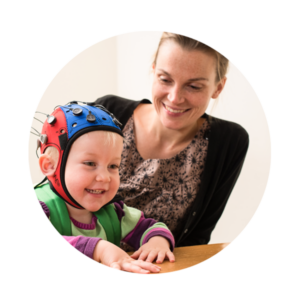‘Neurodiversity: Cutting-Edge Research, Evolving Perspectives, and Effective Innovations’ is the 2025 Jack Tizard Memorial Conference that brings together leading experts to explore neurodiversity research and practices in mental health, genetics and brain development, and lifespan interventions.
Recording and interactive programme
To view in full screen simply click on the button with the two arrows in the bottom right corner. Delegates for this session have complete access including a recording of the session and slides. Non delegates can gain an overview of the topic, test your knowledge with a quiz, and a whole lot more!
This conference offers a unique opportunity for researchers and clinicians to gain practical insights from cutting-edge research on neurodevelopment. Through topics ranging from early intervention and brain mechanisms to strengths-based approaches and mental health prediction in neurodivergent youth, the event fosters cross-disciplinary dialogue and promotes innovative, evidence-based practices to improve outcomes across the lifespan.
About the talks
Professor Angelica Ronald – Genetics and Neurodiversity: Five pressing questions to answer
How do genetic differences in our DNA influence neurodiversity? What does genetic research reveal about why neurodiverse traits co-occur? What are polygenic scores and do they help understand neurodiversity? What are the concerns and safeguards around genetic research? Why is genetic research important for understanding neurodiversity? In this talk, I will draw on my and others research to address these five pressing questions. Genetic research is now being conducted on many human traits and conditions and delivering beneficial scientific and health outcomes. I will outline what we are learning about genetics and neurodiversity and discuss the potential value of genetic research on neurodiversity. I will also emphasise the importance of safeguards in all genetic research.
Learning outcomes
- To understand what has been discovered about the genetic influences relating to neurodiversity
- To learn about how genetic research has informed why neurodiverse traits often co-occur
- To understand both the necessary safeguards and the value of genetic research for understanding neurodiversity.
Assistant Professor Giorgia Michelini – Early identification and support for mental health problems in neurodivergent children and young people
Research and clinical practices for neurodevelopmental conditions have traditionally focused on “core symptoms” (e.g., inattention in ADHD, social communication in autism). The neurodiversity paradigm encourages us to consider the needs of neurodivergent children and young people more holistically and align our efforts with the priorities of the neurodivergent community. One of the community’s top priorities is addressing co-occurring mental health problems, such as anxiety and depression. These co-occurring problems are much more common in neurodivergent people than in the general population and significantly contribute to negative long-term outcomes. However, co-occurring mental health challenges are often overlooked and not supported in clinical settings. In this talk, I will provide an overview of recent research focused on improving understanding, identification, and support for mental health problems in neurodivergent children and young people. This work addresses the priorities of the neurodivergent community and has the potential to improve mental health outcomes for neurodivergent children and young people.
Learning objectives
- To understand the under-recognition of mental health problems in neurodivergent children and young people
- To discuss approaches to identify and predict mental health problems in neurodivergent children and young people
- To evaluate research findings on the possible drivers of mental health problems in neurodivergent children and young people and how they can inform treatment/support strategies
Professor Sir Simon Baron-Cohen – The Pattern Seekers: How autism drives human invention
70,000 to 100,000 years ago, there was a cognitive revolution in the brain, transforming the behaviour of Homo Sapiens such that today we dominate the planet. Two new circuits in the human brain had evolved: The Systemizing Mechanism allowed our species alone to search for if-and-then patterns in the world, enabling generative invention; and the Empathy Circuit allowed our species alone to imagine the thoughts and feelings of others, enabling complex social interaction, including deception and self-reflection. New evidence reveals the link between the autistic mind and the capacity for invention. Society owes a huge debt to autistic people for the contribution that their genes have played in driving the evolution of human progress, and yet autistic people are excluded from society. It’s time to redress this.
Key References
Baron-Cohen, S, (2020) The Pattern Seekers. Basic Books US/Penguin Random House UK
Greenberg, D, M, et al (2018) Testing the Empathizing-Systemizing theory of sex differences and the Extreme Male Brain theory of autism in half a million people. PNAS, 115, 12152-7.
Warrier, V, et al (2019) Social and non-social autism symptom and trait domains are genetically dissociable. Communications Biology, 2, 1-13.
Learning objectives
- To explore if there is a link between autism and invention
- To look at autism in terms of strengths in pattern recognition, not just disabilities in social communication
- To consider how society can become more inclusive for autistic people
Professor Jonathan Green – Early healthcare response to autistic development: concepts, evidence, implementation and long-term outcomes
Health services internationally are facing unprecedented level of referrals for autism and other neurodiversity. I will draw on over 20 years of developmental and translational research to suggest a foundational, integrated, stepped detection/care pathway response to this challenge. The approach is grounded in family-focused care and support through parent mediated intervention; specifically the PACT pre-school and iBASIS infancy intervention models. This Pathway model is pre-emptive, evidenced for long-term developmental impacts, and with practical implementation experience in the UK and internationally. I will present the concepts behind the approach in the context of debates on neurodiversity; evidence of effect from mechanistic clinical trials and health economic analysis; and opportunities and barriers for such implementation, particularly in the NHS.
Learning objectives
- To understand the concepts behind early parent-mediated care and pre-emptive intervention in autism development
- To recognise the evidence on the PACT and iBASIS interventions and their health economic evaluation
- To understand the processes and barriers to implementation of this kind of system change in a health service context
Professor Duncan Astle – Beyond the label? A transdiagnostic approach to neurodevelopment
Human brain development takes a long time and results in highly variable outcomes, including neurodevelopmental and child psychiatric conditions. This variability in brain development is important for understanding differences in cognition, mental health and learning. But measuring and mapping that variability is extremely challenging. This talk showcases the application of different computational frameworks that address three crucial developmental challenges. Firstly, how do we capture the incredible cognitive heterogeneity that exists across childhood and adolescence, and do these differences map to established diagnostic categories? Secondly, can we build developmental models that formalise simple biological principles in order to capture complex developmental phenomena? Thirdly, can we use these models to bridge scales and species to establish fundamental and causal mechanisms that shape development?
Learning outcomes
- Explore the limitations with our existing diagnostic frameworks
- Understand the potential advantages of a transdiagnostic approach in neurodevelopment
- Consider how this perspective might help us understand the foundational mechanisms that drive developmental change and differences
Professor Emily Jones – Uncovering developmental paths to neurodevelopmental conditions: Dynamics over time
Autism is a neurodevelopmental condition that occurs in around 2% of people, and can be associated with differences in social interaction, communication and interests. Autism is connected with genetic changes that are present from conception, but is often not identified until children are in school. Prospective longitudinal studies that follow infants from near birth to childhood can reveal the earliest developmental changes that precede the later emergence of autistic traits. Here, I describe a series of studies examining some of the earliest changes in infants with later autism and their interrelation over both short and long timescales. Within prospective studies, we see differences in sensory reactivity across touch, audition and visual domains, and changes in sleep that precede an autism diagnosis. Sensory differences are related to sleep differences, and both may relate to emerging trajectories of fearfulness and later anxiety, indicating they may be important targets for supportive interventions. Further, changes in sleep may be linked to alterations in daytime brain states that have been associated with longer-term cognitive development. Taken together, examining changes in early sensory development and sleep may provide important insights into the early development of children with neurodevelopmental conditions. I discuss how these approaches can help us think about neurodevelopment from the perspective of neurodiversity.
Learning outcomes
- To understand the early precursors of neurodevelopmental conditions
- To understand the role of a neurodiversity-affirmative perspective
- To understand the mechanisms that might drive neurodivergence
Associate Professor Dr. Lawrence Fung – Strengths-based Model of Neurodiversity in Education, Employment, and Clinical Settings
Neurodiversity is about accepting variations in brain functions and behaviors as part of normal variations of human beings. Uncovering the strengths of neurodiverse individuals empowers them to increase innovation and productivity, resulting in favorable outcomes not only for them but for the entire community. In this presentation, Dr. Fung will describe the Strengths-Based Model of Neurodiversity in developing neurodiverse individuals in learning and work environments. He will explain how the model is implemented in education (Stanford Neurodiversity Project – Research, Education, and Advocacy Camp for High Schoolers (SNP-REACH)), employment (Empower to Employment), and clinical (Cognitive Behavioral Therapy for Autistic Adults Provider Training (CBT-AAPT)) settings.
Learning objectives
- Understand the components of the strengths-based model of neurodiversity.
- Gain knowledge on community-based participatory research for the development of psychoeducational interventions.
- Discover the results of training job coaches, employers, and family members by the Empower to Employment (E2E) curriculum.
- Learn examples of how neurodiversity-informed care can be conducted in the clinical setting.
About the speakers

Professor Angelica Ronald has over 20 years’ experience in researching the genetic basis of neurodiversity. She has investigated the causes of neurodevelopmental conditions and why different neurodevelopmental conditions tends to co-occur. She was awarded the British Psychological Society Spearman medal and the International Society for Autism Research young investigator award for her research on neurodiversity. She is currently Professor of Psychology and Genetics in the Faculty of Health and Medical Sciences at the University of Surrey. Much of the work on neurodiversity in her lab is led by neurodiverse scientists.

Dr. Giorgia Michelini is a Lecturer (Assistant Professor) in Psychology at Queen Mary University of London and a Visiting Researcher at King’s College London and at the University of California Los Angeles (UCLA). After completing a BSc in Psychology and MSc in Clinical Psychology, she pursued a PhD in Developmental Psychopathology and Neuroscience at King’s College London, supervised by Professor Jonna Kuntsi. Her PhD work was awarded the 2018 Elsevier Outstanding Doctoral Thesis Prize and the 2018 Neil O’Connor Prize from the British Psychological Society. She then completed postdoctoral fellowships in the US at SUNY Stony Brook and UCLA, before returning to the UK to take up her current position. Her research seeks to elucidate the biological and psychosocial processes underlying neurodevelopmental (e.g., ADHD) and affective disorders, as well as their co-occurrence, in order to inform prevention, early identification, and treatment strategies. Her work has been supported by the National Institute of Heath Research, Brain and Behavior Research Foundation (NARSAD) and Klingenstein Third Generation Foundation.

Professor Sir Simon Baron-Cohen is Director of the Autism Research Centre (ARC) in Cambridge University. He has made contributions to many aspects of autism research. In 2017, he gave a keynote address to the United Nations on Autism Awareness Day on the topic of Autism and Human Rights. In 2021, he received a knighthood in the New Year’s Honours List for his services to autism. The Medical Research Council (MRC) awarded him with the MRC Millennium Medal 2023 in recognition of his pioneering MRC-funded research into the prenatal sex steroid theory of autism, his establishment of the ARC, and his work in the public understanding of neurodiversity.


Duncan Astle is a the Gnodde Goldman Sachs Professor of Neuroinformatics in the Department of Psychiatry, and a Programme Leader at the MRC Cognition and Brain Sciences Unit, where he leads the 4D Research Group. He is also a Fellow of Robinson College. Prior to this he completed his training at Durham and Nottingham, and held fellowships at Oxford, Royal Holloway and Cambridge. He is a developmental cognitive neuroscientist and his research uses multiple methods to explore how brain systems develop through childhood, and the mechanisms that give rise to divergent developmental trajectories or neurodevelopmental disorders. This programme of work has been supported by the Royal Society, the British Academy, the Medical Research Council, the Economic and Social Research Council, James S. McDonnell Foundation, Templeton World Charitable Foundation, and multiple charities. Duncan currently serves on the Medical Research Council’s Neurosciences and Mental Health Board and as Chair of the University’s LGBT+ Staff network. He has won a number of Prizes for his research, most recently the Vice-Chancellor’s 2020 Award for Impact and Engagement by an established researcher.

Emily Jones is a Professor at the Institute of Psychiatry, Psychology and Neuroscience at Kings College London and the Centre for Brain and Cognitive Development, Birkbeck, University of London. Her research interests centre on understanding the cognitive and neural mechanisms that drive variability in developmental trajectories. In this context, she runs a number of prospective longitudinal studies of typical and atypical neurodevelopment in infants with genetic conditions and a family history of autism and ADHD and directs electrophysiological and eyetracking acquisition across several large-scale European and Global Health studies of children and adults with neurodevelopmental conditions.

Associate Professor Dr. Lawrence Fung is an Associate Professor in the Department of Psychiatry and Behavioral Sciences at Stanford University. He is the director of the Stanford Neurodiversity Project, director of the Neurodiversity Clinic, and principal investigator at the Fung Lab. His work, which focuses on autism and neurodiversity, traverses from multi-modal neuroimaging studies to a new conceptualization of neurodiversity and its application to clinical, educational, and employment settings. His lab advances the understanding of neural bases of human socio-communicative and cognitive functions by using novel neuroimaging and bioanalytical technologies. Using a community-based participatory research approach, his team devises and implements novel interventions to improve the lives of neurodiverse individuals by maximizing their potential and productivity.

